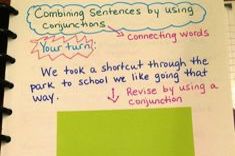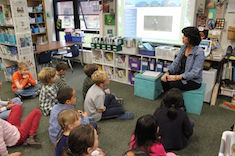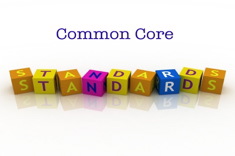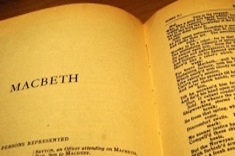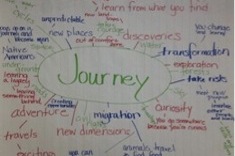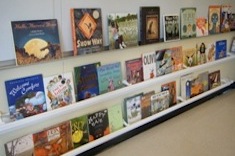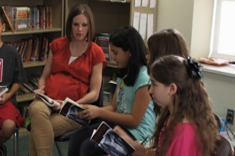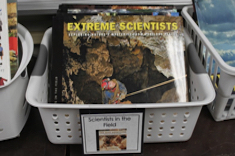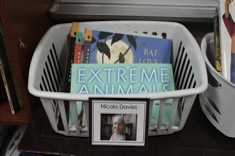Articles
Here is where you’ll find all the latest print features from our contributors. If you’d like to browse specifically by grade level, topic, or contributor, you can use the links in the right sidebar.
Latest Content
A Tool Worth Exploring: Sentence Combining
Heather Rader begins a new series on sentence combining, an alternative to traditional drill and kill grammar instruction.
Deeper Writing: The Story Behind the Selfie
Gretchen Taylor taps into a cultural phenomenon with her seventh-grade writers to help them deepen their writing and reflection.
Making the Most of Short Texts
Mary Lee Hahn melds short texts with the Common Core in this first article in a two-part series.
no i don’t think you need to shave
Katie Baydo-Reed lays down the law for her eighth graders about capitalization and the use of periods, with excellent and hilarious results. This piece will make you laugh out loud at the gaps between the ways teachers and teenagers think.
Children’s Literature for the Olympics
The Olympics are just around the corner, and Sarah Klim has suggestions for read alouds in a new booklist.
Explanatory Grammar Moves: Getting Verbal with It
Jeff Anderson concludes his series on explanatory grammar moves by exploring participles, included in the Common Core eighth-grade standard covering the use of verbals.
Making Classics Relevant for Middle School Students
Jennifer Schwanke helps middle school students make connections between classics and their current reading.
Middle School Design: Cozy Reading Spaces
Katie Doherty has design tips for creating cozy reading spaces in middle school classrooms where there is no space or budget for a whole-class rug area.
15 Minutes on Friday: Writing on Demand with Students
Mary Lee Hahn finds 15 minutes of writing on Friday builds fluency and confidence in her fifth-grade students, and gives her a wealth of formative assessment data at the same time.
Jennifer Serravallo on Formative Assessment (PODCAST)
Franki Sibberson chats with Jennifer Serravallo about formative assessment in this podcast. Jennifer is the author of The Literacy Teacher’s Playbook, Grades 3-6: Four Steps for Turning Assessment Data into Goal-Directed Instruction.
Formative Spelling Assessment
Max Brand has developed templates for grades K-2 and 3-5 to use for formative spelling assessments.
Liberty and Dystopia: February Literacy Contracts
Megan Ginther and Holly Mueller focus their February Literacy Contracts on dystopias.
Smarter Charts (PODCAST)
In this podcast, Franki Sibberson chats with Kristi Mraz and Marjorie Martinelli (the authors of Smarter Charts) about ways teachers can keep anchor charts in their classrooms fresh and useful.
The Shape of Stories
Mary Lee Hahn explores story structure with her fifth-grade students. This is a terrific activity for helping older students understand increasingly complex story structures as they move through the intermediate grades.
Act III: Exploring Subtext with A Midsummer Night’s Dream (Shakespeare and the Common Core Series)
Gretchen Schroeder concludes her Shakespeare in the Age of the Common Core Series with activities to explore subtext in A Midsummer Night’s Dream.
Act II: Understanding Hamlet Through Close Reading (Shakespeare and the Common Core Series)
Gretchen Schroeder continues her Shakespeare and the Common Core series on teaching the classics in high school, explaining how she uses Hamlet in creative ways to teach close reading strategies.
Penguins Are Amazing!: Informational Writing Comes Alive in Kindergarten
Can kindergartners do informational writing? Keri Archer finds the answer is yes, as she applies Common Core standards to inquiry work in her classroom.
Streamlining Research Check-ins
Gretchen Taylor finds streamlining research check-ins in her middle school classroom is easy to do when she uses a simple online tool to eliminate a mountain of paper.
Common Core Research Shifts
Maria Caplin explains four changes she is making in her fifth-grade classroom with writing instruction because of the Common Core.
Act I: Delving into Deep Questions with Macbeth (Shakespeare and the Common Core Series)
Gretchen Schroeder launches a three-part series on Shakespeare in the Age of the Common Core. This week’s installment is a fresh take on teaching Macbeth to high school students.
Keep Going
Ruth Ayres has advice for moving forward, staying positive, and focusing on what’s important.
Journeys and Quests: January Literacy Contracts
Middle school teachers Megan Ginther and Holly Mueller focus on journeys and quests as the theme of their January Literacy Contracts in the latest installment of their year-long series.
A Closer Look at Engagement
Are the terms stamina and engagement synonymous? Cathy Mere defines the terms by observing her first graders.
Rethinking Nonfiction Topic-Based Text Sets
Franki Sibberson concludes her series on redesigning nonfiction sections of classroom libraries in the age of the Common Core.
Middle School Design: Reading Gutters
Katie Doherty explains how reading gutters, an inexpensive design feature, dress up her middle school classroom and build community at the same time.
Tell Me More
Gretchen Taylor finds the three little words “tell me more” provide breakthroughs in helping her middle school students respond to reading.
Rethinking Nonfiction Series Books
Franki Sibberson explains how she features nonfiction series books in her classroom library.
Rethinking Nonfiction Author Baskets
Franki Sibberson realizes she needs to highlight nonfiction authors in new ways in her classroom library.
Explanatory Grammar Moves: Right-Branching Sentences
Jeff Anderson continues his Explanatory Grammar Series with a feature on the power of right-branching sentences.
Spelling Cycles: An Alternative to Weekly Spelling Lists
Max Brand developed Spelling Cycles as an alternative to weekly spelling tests. He explains how they work with an example from a third-grade class.
Browse Content By
Type
Category
- Assessment Tools
- Big Fresh Archives
- Booklists
- Choice Numeracy
- Classroom Design
- Common Core
- Community Building
- Conferring
- Content Literacy
- Digital Literacy
- English Language Learners
- Equity
- Family Relations
- Free Samples
- Guiding Groups
- Leadership
- Literacy Coaches
- Mentor Texts
- Minilessons
- New Teacher Mentors
- Podcasts
- Poetry
- Quote Collections
- Reading Strategies
- Self Care
- Struggling and Striving Learners
- Talking and Listening
- Teacher Study Groups
- Teaching Reading
- Teaching Writing
- Word Study and Vocabulary
Author
- Melissa Quimby
- Nawal Qarooni
- Gwen Blumberg
- Julie Cox
- The Lead Learners
- Hannah Tills
- Josie Stewart
- Ruth Metcalfe
- Mallory Messenger
- Becca Burk
- Jodie Bailey
- Vivian Chen
- Mary Brower
- Tiffany Abbott Fuller
- Stephanie Affinito
- Ruth Ayres
- Leigh Anne Eck
- Heather Fisher
- Shari Frost
- Julie Johnson
- Suzy Kaback
- Gigi McAllister
- Shirl McPhillips
- Melanie Meehan
- Cathy Mere
- Debbie Miller
- Tara Barnett and Kate Mills
- Tammy Mulligan
- Dana Murphy
- Bitsy Parks
- David Pittman
- Brenda Power
- Heather Rader
- Matt Renwick
- Mandy Robek
- Christy Rush-Levine
- Gretchen Schroeder
- Jen Schwanke
- Brian Sepe
- Katherine Sokolowski
- Stella Villalba
- Jennifer Vincent
Grade Level
Choice Literacy Membership
Articles
Get full access to all Choice Literacy article content
Videos
Get full access to all Choice Literacy video content
Courses
Access Choice Literacy course curriculum and training






